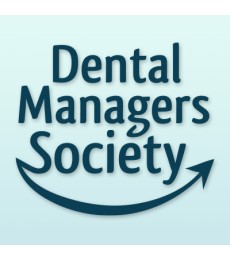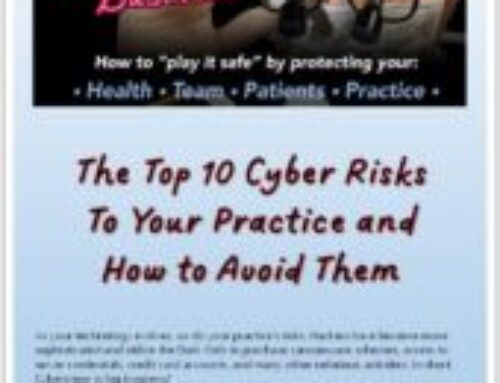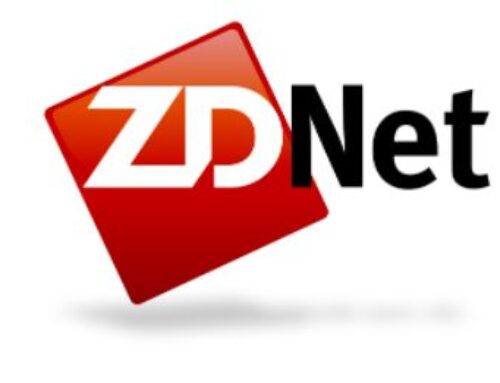By David Snell, ACTSmart Dental
Now Let’s face it: no one likes to think about bad things happening to them, much less plan for them. But since September is National Disaster Preparedness Month, we want to give you a quick “brush-up” on some simple things you can (and should!) be doing to protect your practice.
1. Review Your Practice Insurance Carefully. Most practices carry some type of general liability insurance that would pay them if their building and the things in it were damaged. However, many do not have enough coverage to replace all the computer equipment and devices, desks, art, supplies and other things they’ve accumulated over the years that are housed in their office. Make sure you review your policy every year and keep in mind new additions and assets you’ve accumulated during that year. Business interruption insurance (also known as business income insurance) covers the loss of income that a business suffers after a disaster while its facility is either closed because of the disaster or in the process of being rebuilt after it. A property insurance policy only covers the physical damage to the business, while the additional coverage allotted by the business interruption policy covers the profits that would have been earned. This extra policy provision is applicable to all types of businesses, as it is designed to put a business in the same financial position it would have been in if no loss had occurred.
2. Consider Hybrid Cloud Computing. Although Full on “Cloud Computing” isn’t right for most dental practices’ software because of the nature of our local internet speed and reliability for continuous data transfer to and from the cloud, it is extremely valuable for “Hosted Exchange.” Hosted Exchange is often a much more effective way of getting rid of all spam and security issues at a much lower cost to your practice. Here’s how it works: Instead of you purchasing and maintaining your e-mail in house which can be costly and time consuming, your Exchange server is hosted (and maintained) in a high-performance, high-security hosting server “in the cloud” where you can access it securely from any device or PC anytime and anywhere.
3. Secure Your Data. Making sure that your data is protected from theft is a never-ending battle you don’t want to lose. Companies that get hacked and expose sensitive client and employee data can face severe financial penalties, lawsuits and massive loss of credibility in the marketplace. Make sure you never have to send an e-mail to your patients explaining the bad news that a hacker accessed their info through you. Further, if you keep any sensitive information (even passwords to portals containing sensitive information) on portable laptops, phones and other devices, make sure you have a way of controlling and safeguarding that information.
4. Write A Simple Disaster Recovery Plan. The key word here is “simple.” If your plan gets too complicated or difficult, you won’t do it. But at a minimum, think of the disaster that is most likely to happen and that would have a severe and negative impact on your company’s survival.
5. Review Your Employee Internet Policy. With so many people “addicted” to Facebook and Twitter, it’s important that your employees know where the line is in what they can and can’t post online. We also recommend content-filtering software to block content and web sites you don’t want employees visiting during work hours.






